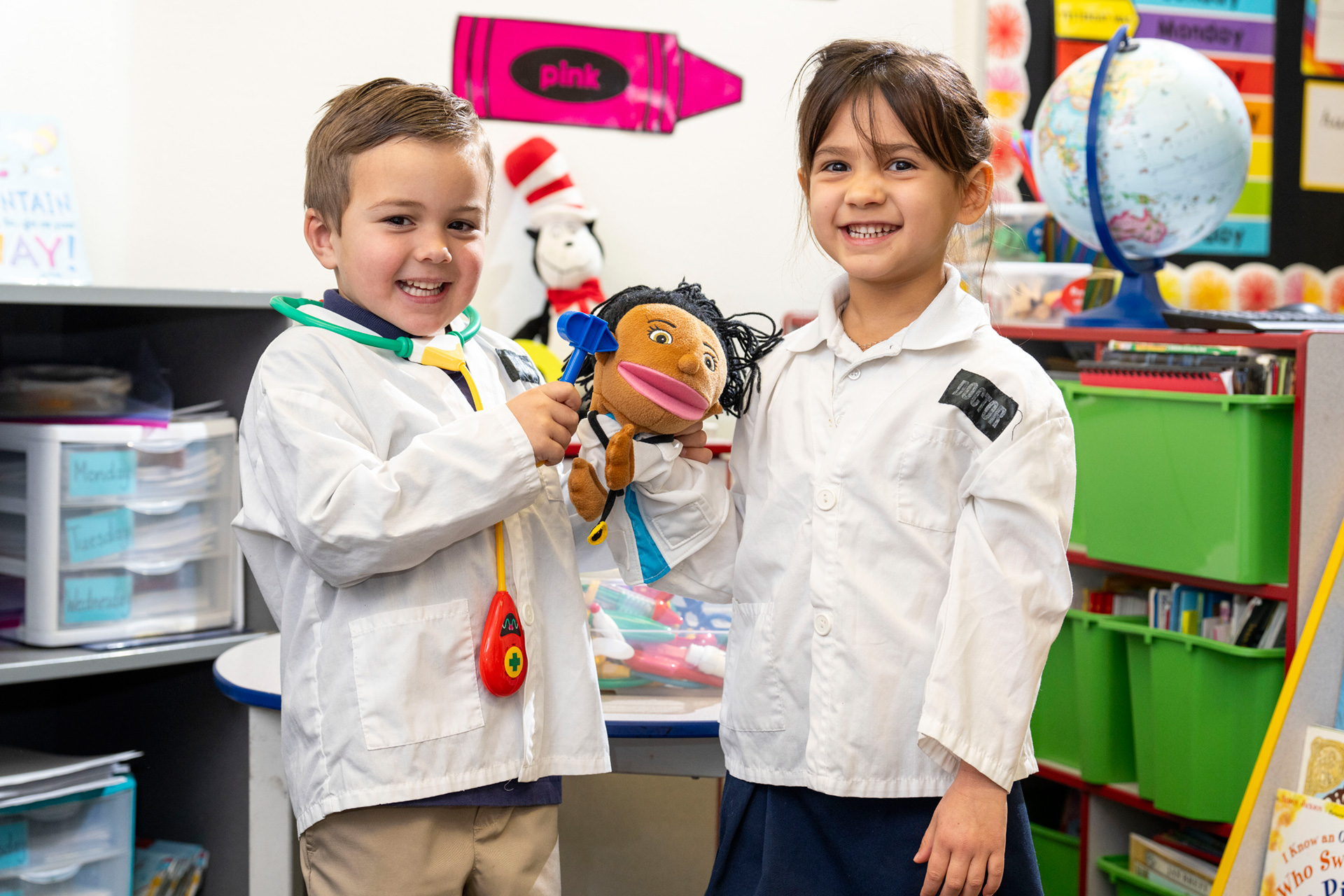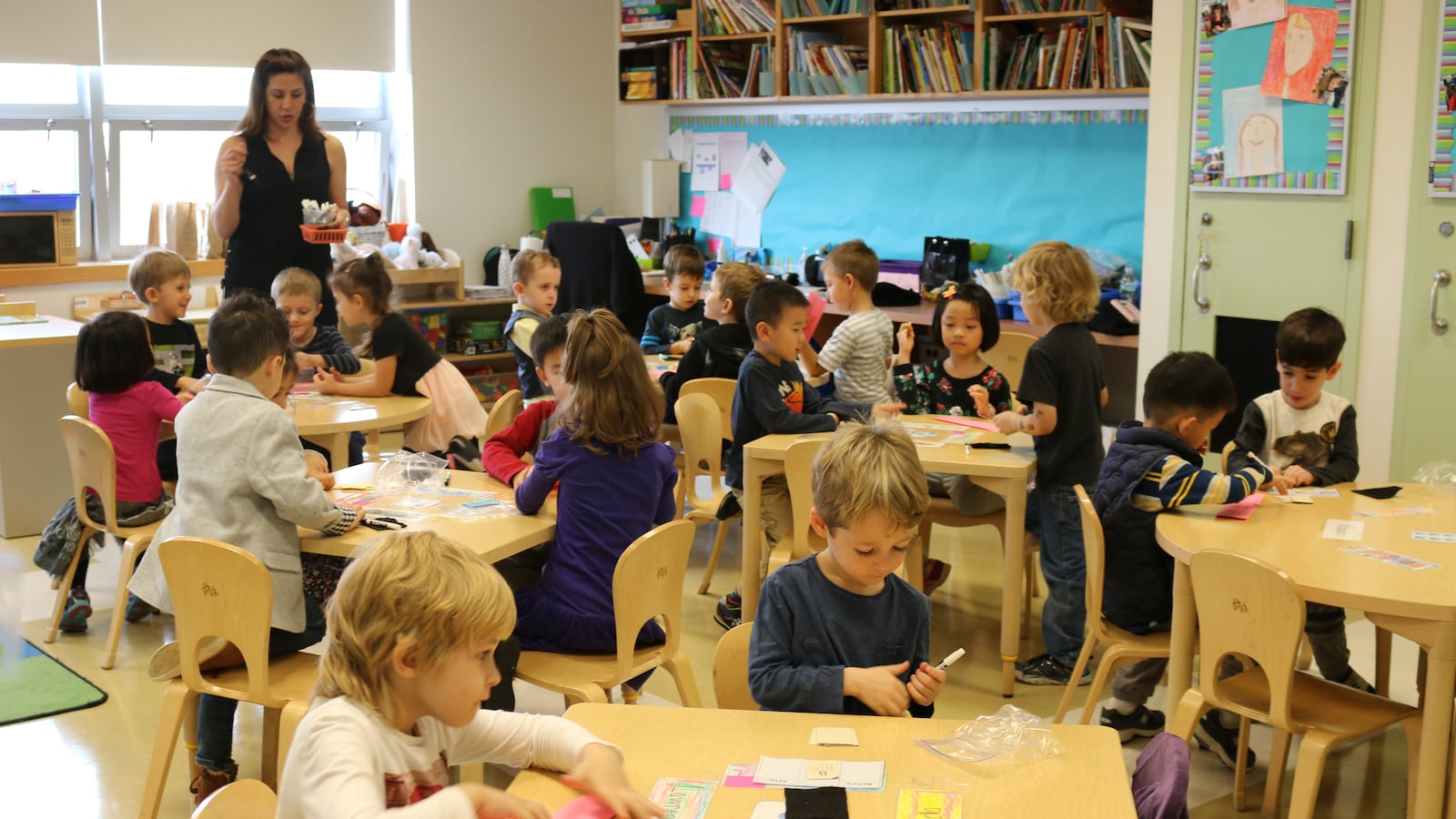How science experiments motivate curiosity in Grade School classrooms
Wiki Article
Understanding Elementary School: Secret Facts and Amazing Activities for every single Student
Elementary school serves as a crucial structure for pupils, blending academic learning with the advancement of social skills. This period is crucial for cultivating emotional knowledge and resilience. Involving activities can boost inquisitiveness and motivation, but the obstacle depends on locating the best balance. As parents and teachers browse this landscape, understanding the complex nature of elementary school comes to be crucial. What techniques can properly sustain trainees in this transformative phase?The Importance of Social Skills in Elementary School
Although scholastic expertise is critical, social skills play an important function in quality school advancement. Throughout these developmental years, children find out to engage with their peers, work out disputes, and develop relationships. Social skills encompass a variety of competencies, consisting of effective communication, compassion, and synergy. These capabilities make it possible for pupils to browse the complexities of social characteristics within the classroom and beyond.As kids involve in group activities and joint jobs, they establish vital interpersonal skills that add to their psychological knowledge. This foundational competence promotes a sense of belonging and enhances total health. In addition, kids that possess solid social abilities often tend to experience far better scholastic outcomes, as they are much more likely to get involved actively in conversations and seek help when required.

In significance, the cultivation of social abilities during quality school is not simply helpful however important for promoting a well-shaped person prepared for future challenges.
Stabilizing Academics and Creative Thinking
As students proceed through elementary school, balancing academics with creative thinking becomes important to their overall development. This equilibrium cultivates critical reasoning, problem-solving, and development, abilities needed for future success. Academic topics supply fundamental understanding, while creative activities motivate students to share themselves and check out originalities.Integrating creative thinking into the curriculum can improve interaction and inspiration, enabling trainees to get in touch with the material on a much deeper degree (Private School). Tasks that blend topics, such as art and scientific research, can promote inquisitiveness and advertise a love for understanding
Creative electrical outlets like songs, drama, and visual arts aid students develop emotional knowledge and strength. These experiences add to a well-rounded education, preparing trainees for a rapidly altering world.
Inevitably, focusing on both academics and creativity outfits students with a varied ability collection, allowing them to navigate difficulties and seize chances successfully throughout their instructional journey and beyond.
Involving Tasks to Improve Knowing
Countless appealing tasks can greatly boost learning experiences for elementary school pupils. These activities not only make discovering enjoyable however also aid reinforce crucial ideas. Hands-on experiments in science classes enable students to check out theories almost, promoting inquisitiveness and much deeper understanding. Interactive narration sessions can improve literacy skills while sparking creative imagination and imagination.Team jobs motivate collaboration, mentor pupils the significance of teamwork and interaction. Integrating innovation, such as electronic quizzes and educational video games, can likewise mesmerize students' interest and make discovering more dynamic. Arts and crafts tasks can assist in the growth of fine motor abilities while providing an innovative outlet.
In addition, outside tasks, like nature strolls or scavenger hunts, attach trainees with the atmosphere and promote physical health. By integrating these engaging tasks into the educational program, educators can create a stimulating knowing ambience that caters to diverse discovering styles and maintains students motivated.
The Role of Adult Assistance in Education And Learning
Parental assistance plays a substantial function in the educational trip of quality school pupils. Research study shows that when parents actively engage in their youngster's education, it favorably influences scholastic performance, inspiration, and general well-being. Private Grade School Peoria. Regular participation, whether with homework help or attending college events, cultivates a sense of security and enhances the worth of educationEfficient interaction between instructors and parents boosts the finding out experience. Moms over here and dads that work together with teachers can better comprehend their child's obstacles and staminas, permitting tailored support. This partnership motivates accountability and sets high expectations for trainees.
Additionally, adult mindsets toward education considerably affect children's perspectives. When moms and dads show a positive outlook on understanding, it cultivates interest and durability in their youngsters. Eventually, the structure of adult assistance is crucial in forming trainees' perspectives, actions, and scholastic success throughout their quality college years.
Constructing a Favorable Understanding Setting
Developing a favorable understanding setting is essential for fostering academic success and psychological wellness among grade school students. Such an atmosphere promotes engagement, urges cooperation, and boosts inspiration. Teachers play a significant role in developing this environment by executing techniques that focus on regard, inclusivity, and assistance.Class administration practices, such as clear assumptions and positive responses, are vital in supporting a sense of security. Furthermore, incorporating varied mentor methods can provide to various discovering styles, making certain that all pupils feel valued.
Urging peer interactions and team activities also grows social skills and a feeling of community. Commemorating achievements, check over here despite just how small, enhances positive actions and increases self-confidence.
Eventually, a favorable knowing atmosphere not only enhances scholastic efficiency but likewise fosters emotional resilience, helping pupils flourish both inside and outside the class. This structure is considerable for their total growth and lifelong discovering journey.
Methods for Developing Essential Assuming Abilities
Efficient strategies for establishing critical thinking skills in elementary school include encouraging inquiry-based discovering and advertising analytic tasks. Inquiry-based learning promotes interest and permits pupils to explore concerns, while analytic tasks challenge them to apply their knowledge in useful circumstances. With each other, these methods enhance pupils' capacity to think critically and separately.Motivating Inquiry-Based Understanding
How can educators foster a classroom setting that advertises inquiry-based understanding? Educators can develop an atmosphere that encourages curiosity by presenting flexible questions and helping with discussions that prompt students to explore numerous viewpoints. Urging pupils to ask their own inquiries can even more stimulate their vital reasoning skills. Incorporating hands-on activities and real-world problems permits trainees to engage directly with have a peek at this website the material, cultivating much deeper understanding. Additionally, providing possibilities for joint jobs can enhance peer-to-peer learning, where students share understandings and improve each other's concepts. By integrating innovation and resources that support expedition, instructors can aid pupils take ownership of their learning trip, consequently cultivating a mindset of questions that prolongs beyond the classroom.Promoting Problem-Solving Activities
While fostering analytic activities in the class, instructors can significantly enhance pupils' crucial reasoning abilities. By including hands-on tasks, seminar, and real-world situations, instructors urge pupils to analyze circumstances, identify patterns, and discover multiple remedies. Engaging trainees in collaborative difficulties not only promotes team effort but likewise boosts their ability to express reasoning and validate their choices. In addition, integrating innovation via coding exercises or simulations can boost creative analytical approaches. Examining students' thought procedures via reflective practices enables deeper understanding and improvement. Generally, promoting analytical tasks grows an environment where important thinking flourishes, furnishing pupils with important skills for future scholastic and life obstacles. These techniques ultimately prepare learners to navigate complicated problems with confidence and advancement.
Often Asked Inquiries
What Age Do Kid Typically Begin Grade Institution?
Youngsters generally start grade institution at around age 6. This age can differ a little depending on regional academic plans and specific preparedness, yet 6 years of ages is one of the most typical beginning point for formal education and learning.Exactly How Can I Assist My Youngster With Research?
To aid with research, parents can develop an organized environment, establish a routine, motivate concerns, supply sources, and use assistance without providing direct answers, fostering independence and crucial reasoning in their child's knowing process.What Are Typical Quality Institution Knowing Difficulties?
Typical grade school learning challenges include difficulties with reading understanding, mathematics ideas, focus period, and social abilities. These challenges can influence scholastic efficiency and need tailored support to assist trainees achieve their full capacity.Just How Can Parents Connect Properly With Teachers?
Reliable interaction between teachers and moms and dads can be accomplished through normal updates, open discussions, arranged meetings, and energetic listening. Developing a collective relationship promotes understanding and supports the youngster's academic journey positively.What Extracurricular Tasks Are Offered in Grade Institution?
Grade institutions usually offer a selection of extracurricular activities, consisting of sporting activities groups, songs and art programs, dramatization clubs, and academic competitors. These activities improve social abilities, foster team effort, and motivate creativity amongst students outside the classroom.
Grade institution serves as an essential foundation for pupils, blending scholastic knowing with the growth of social skills. Countless interesting activities can substantially improve finding out experiences for grade institution students. Producing a favorable knowing environment is crucial for fostering scholastic success and psychological well-being among quality school trainees. Inquiry-based discovering fosters interest and permits students to discover concerns, while analytic activities challenge them to apply their expertise in practical circumstances. While cultivating analytic activities in the classroom, teachers can substantially enhance students' important reasoning abilities.
Report this wiki page